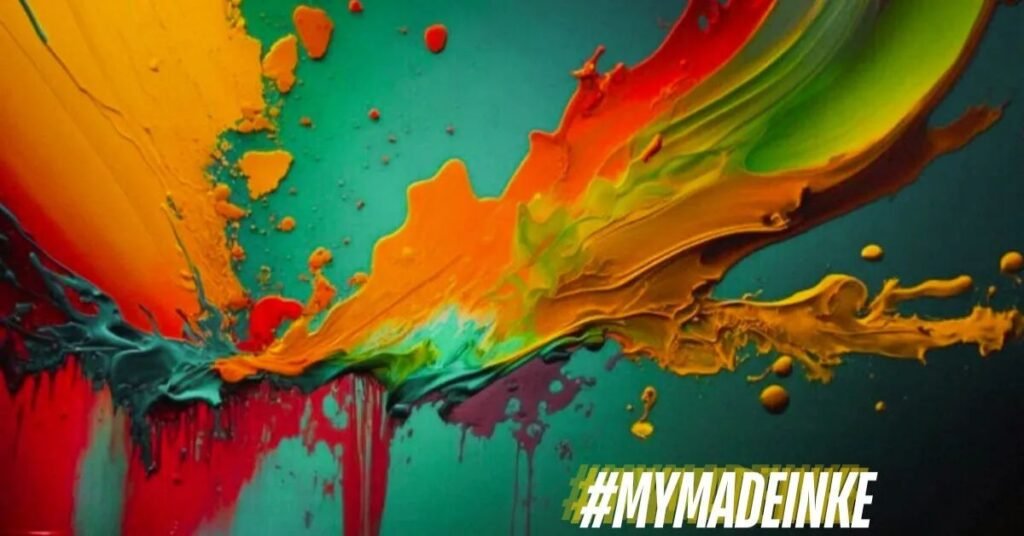Introduction
In recent years, the hashtag #MyMadeInKE has become a powerful symbol of pride, growth, and empowerment for Kenyan entrepreneurs. This movement promotes locally made products, encouraging Kenyans and global consumers to support homegrown businesses. As a celebration of Kenyan craftsmanship and innovation, #MyMadeInKE is reshaping how people perceive local products, fostering a culture of entrepreneurship, and contributing to the country’s economic growth.
This article will explore the #MyMadeInKE movement, explain its significance, discuss its benefits, and provide practical applications for consumers and entrepreneurs. We’ll also cover challenges faced by local brands and potential solutions to overcome them.
Detailed Explanation of Key Concepts
What is #MyMadeInKE?
#MyMadeInKE is a social media-driven movement designed to promote products made in Kenya. The hashtag serves as a rallying point for consumers to show pride in purchasing locally-made goods and for entrepreneurs to showcase their offerings. It has become a digital marketing tool for Kenyan brands, helping them reach both domestic and international markets.
The Origins of #MyMadeInKE
The #MyMadeInKE initiative gained momentum as a grassroots movement aimed at boosting local businesses. By promoting Kenyan-made products, the hashtag encourages self-reliance and reduces dependency on imported goods. The movement has helped build awareness of the quality and uniqueness of Kenyan products, ranging from fashion and art to food and tech innovations.
Why #MyMadeInKE Matters
The movement highlights the importance of supporting local economies and entrepreneurs. By purchasing Kenyan-made products, consumers contribute to job creation, skill development, and economic independence. Additionally, #MyMadeInKE promotes sustainability by reducing the environmental impact associated with importing goods. It showcases the talent, creativity, and resourcefulness of Kenyan producers, helping to elevate the country’s global standing in various industries.
Key Industries Involved in #MyMadeInKE
The movement spans multiple sectors, including:
- Fashion: Promoting Kenyan designers and textiles
- Food and Beverages: Highlighting locally produced foods and drinks
- Art and Crafts: Showcasing handmade Kenyan crafts
- Technology: Supporting Kenyan startups and innovations
- Agriculture: Celebrating Kenya’s agricultural products, such as coffee, tea, and flowers

Importance and Benefits of #MyMadeInKE
Economic Growth and Job Creation
One of the biggest benefits of #MyMadeInKE is its impact on Kenya’s economy. Local brands create employment opportunities, allowing small and medium enterprises (SMEs) to thrive. As more consumers buy Kenyan-made products, businesses grow, hire more people, and contribute to reducing unemployment. This, in turn, stimulates the economy, benefiting communities nationwide.
Empowering Local Entrepreneurs
The movement provides a platform for local entrepreneurs to compete with international brands. By embracing #MyMadeInKE, businesses can showcase their products on social media and reach a wider audience. This exposure allows Kenyan entrepreneurs to gain recognition and build customer loyalty, especially among younger, socially-conscious consumers who want to support local businesses.
Sustainability and Environmental Impact
Supporting Kenyan-made goods helps reduce carbon footprints by minimizing the need for international shipping. Locally-produced items tend to have lower transportation costs, reducing fuel consumption and greenhouse gas emissions. In addition, many Kenyan brands emphasize sustainable practices, such as sourcing eco-friendly materials and implementing ethical production processes. The #MyMadeInKE movement aligns with the global push towards sustainability and conscious consumerism.
Cultural Identity and National Pride
#MyMadeInKE encourages Kenyans to take pride in their heritage. By supporting local artists, designers, and innovators, the movement preserves and promotes Kenyan culture. Products often reflect local traditions and craftsmanship, giving consumers a sense of connection to their roots. This cultural pride extends beyond Kenya’s borders, as international consumers increasingly recognize the value and beauty of Kenyan-made goods.
Reducing Trade Deficits
When consumers prioritize locally-made products, they help reduce Kenya’s trade deficit by decreasing the demand for imported goods. A healthy balance between exports and imports strengthens the economy, increases the value of local currency, and fosters economic resilience. The #MyMadeInKE movement plays a critical role in reshaping consumer preferences towards homegrown alternatives.
Applications and Use Cases of #MyMadeInKE
Showcasing Local Fashion
Kenya has a rich tradition of fashion, from the vibrant patterns of kitenge and kikoi to contemporary streetwear brands. The #MyMadeInKE hashtag has helped designers such as KikoRomeo, Vivienne Taa, and 2ManySiblings gain recognition. Consumers can proudly wear Kenyan fashion, promoting not only style but also cultural identity.
Promoting Artisans and Handicrafts
Kenyan artisans produce beautiful, handmade products such as jewelry, baskets, and sculptures. Platforms like #MyMadeInKE provide them with global visibility. Tourists and international buyers are more likely to purchase authentic Kenyan crafts, boosting sales and preserving traditional craft-making techniques.
Supporting Kenyan Food and Beverages
Kenyan coffee, tea, and other agricultural products are renowned worldwide for their quality. The #MyMadeInKE movement extends to food and beverage producers who focus on local sourcing. Brands like Dormans Coffee and Kericho Gold Tea have gained traction by embracing their Kenyan roots and highlighting their locally sourced ingredients.
Technology and Innovation
Kenya’s tech sector is booming, with Nairobi often referred to as “Silicon Savannah.” The #MyMadeInKE movement includes tech startups that are developing locally-made software, mobile applications, and hardware solutions. Entrepreneurs in this space, such as those at Safaricom, mPesa, and BRCK, have revolutionized Kenya’s tech landscape by offering services tailored to local needs while reaching global markets.
Agriculture and Eco-friendly Products
Kenya’s agricultural sector also benefits from the #MyMadeInKE movement. Farmers, cooperatives, and food producers are finding new markets for products like organic fruits, vegetables, and spices. Sustainable practices, such as organic farming, make these products attractive to consumers who prioritize health and environmental responsibility.
Challenges and Solutions
Challenge 1: Competition with Imported Goods
Many Kenyan consumers are still drawn to imported products, often believing that foreign goods are of higher quality. This perception makes it challenging for local brands to compete with international companies, especially in terms of price and prestige.
Solution: Educating Consumers
To combat this challenge, local entrepreneurs must invest in educating consumers about the quality and uniqueness of Kenyan-made products. By showcasing the craftsmanship and sustainability of #MyMadeInKE items, businesses can shift consumer mindsets. Social media campaigns and collaborations with influencers can help promote the value of locally-produced goods, emphasizing their role in supporting the economy and cultural heritage.
Challenge 2: Limited Access to Funding
Many Kenyan entrepreneurs face financial constraints that limit their ability to scale up operations or invest in marketing. Access to credit, grants, or investment capital can be difficult for small and medium-sized businesses, hindering their growth potential.
Solution: Leveraging Government Support and Private Investments
To address these funding issues, entrepreneurs can take advantage of government programs aimed at supporting SMEs. Initiatives such as the Youth Enterprise Development Fund (YEDF) and the Kenya Industrial Estates (KIE) offer financial assistance and training programs. Additionally, private investors and crowdfunding platforms like M-Changa can help local brands raise capital and expand their reach.
Challenge 3: Limited International Exposure
While #MyMadeInKE has helped boost local brands, many Kenyan businesses still struggle to gain traction in international markets. Exporting products requires navigating complex regulations, logistics, and marketing strategies that can be daunting for smaller companies.
Solution: Building Strong Export Networks
Kenyan businesses can benefit from collaborating with export agencies like the Kenya Export Promotion and Branding Agency (KEPROBA). These organizations help local brands navigate the complexities of international trade, providing guidance on meeting export standards and connecting them with global buyers. Additionally, building partnerships with international influencers or retailers can help introduce #MyMadeInKE products to a broader audience.
Challenge 4: Perception of Low-Quality Production
Some consumers still perceive locally-made products as inferior to imported goods, particularly in industries like electronics and technology. Overcoming this negative stereotype is crucial for the long-term success of Kenyan brands.
Solution: Investing in Quality Control and Branding
Kenyan entrepreneurs need to prioritize quality control to build trust with consumers. Ensuring high standards in production, packaging, and customer service can help shift perceptions. Developing strong, recognizable branding that highlights the product’s Kenyan origins and commitment to quality is essential for changing consumer attitudes. Success stories from well-established Kenyan brands can also serve as examples to inspire other entrepreneurs.
Conclusion
The #MyMadeInKE movement is more than just a social media trend—it’s a reflection of Kenya’s growing entrepreneurial spirit and commitment to self-reliance. By supporting locally-made products, consumers contribute to job creation, economic growth, and the preservation of cultural identity. Kenyan entrepreneurs, in turn, gain the visibility and recognition needed to thrive in both local and international markets.
Despite the challenges faced by Kenyan brands, the solutions available—from education to funding and quality control—are helping #MyMadeInKE gain traction. With continued support from consumers and strategic investments in innovation, the future of Kenyan-made products looks promising. Now, more than ever, buying local means contributing to a larger movement of sustainability, pride, and economic resilience.
FAQs
1. What is #MyMadeInKE?
#MyMadeInKE is a social media movement promoting Kenyan-made products, encouraging local entrepreneurship, and boosting economic growth.
2. How does #MyMadeInKE benefit local businesses?
The movement provides visibility for Kenyan brands, supports job creation, and helps reduce dependency on imported goods.
3. What industries are involved in the #MyMadeInKE movement?
The movement spans industries such as fashion, agriculture, technology, art, and food, showcasing Kenyan innovation and craftsmanship.
4. What challenges do Kenyan businesses face with #MyMadeInKE?
Challenges include competition with imports, funding issues, limited international exposure, and perceptions of low quality.
5. How can I support the #MyMadeInKE movement?
Consumers can support #MyMadeInKE by purchasing Kenyan-made products, sharing them on social media, and encouraging others to buy local.








